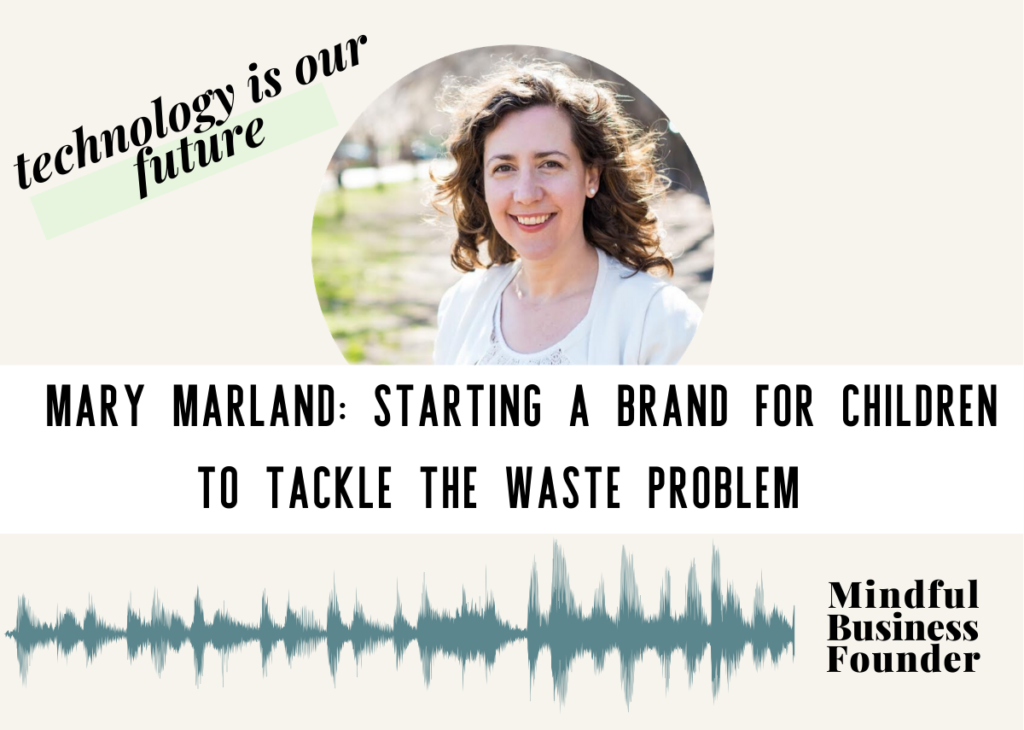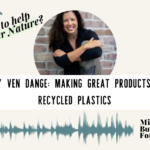Starting a Brand for Children to Tackle the Waste Problem by Mary Marland
Mary Marland is a fashion business owner who has left her job as an investment banker to launch her brand WILD DOVES.
In this really insightful conversation, Mary will tell us how… waste in the infant wear industry inspired her to start her own business.
PART 1
Of course, we will be talking a lot about waste, but also we will hear how Mary went down a real rabbit hole when she started sourcing and asking the real and sometimes, uncomfortable questions.
Mary also will tell us about the different types of materials, what’s behind the certifications and why her brand is gender-neutral.
As you will notice, Mary is a true shaker in the industry. The business she is building would spark an ineluctable fire in this massive industry that needs a real transformation at every step of the value chain.
I’ve learned a lot in this fun conversation with Mary Marland and I hope you will too.
Episode notes (part 1)
- 02:00 Mary’s Vision of the world: Conscious living and more deliberate living
- 04:00 Mary launched Wild Doves to solve waste problem generated by the infant wear
- 08:00 The fashion items disposal problem and waste generated by the industry
- 13:00 Compost of 100% natural fashion fiber, repurpose and resale used fashion items
- 17:00 Discussions about recycling fibers used in fashion
- 19:30 The truth about bamboo fabrics
- 24:30 Her experience sourcing for fabrics with the minimum footprint
- 28:30 Mary’s definition of a sustainable fashion business, from farm to landfill.
- 32:30 Being gender-neutral with infant’s wear to break the organized bias from the fashion industry to always sell more items
===========================
NUGGETS:
- Most people treat infant’s wear as disposable
- There’s no such thing as zero-footprint.
- You cannot consider sustainability without considering the waste issue, so that is farm to landfill
- Bamboo is sustainable in agricultural terms but not as fabric as it requires chemicals in the making process (bamboo viscose)
- It wasn’t until the 19th century that consumerism created boys and girls clothing
PART 2
In the first part of our conversation, among many other things, we talked about conscious living, the full cycle of sustainability that any fashion business owners should address, and about the tactics introduced in the 19th century by the garment manufacturing sector to push for more consumption.
Now, if you want to know more about Mary’s entrepreneurial journey, this episode is definitely for you.
In this part of our conversation, Mary will share with us the main difficulties she faced when she first launched her brand and why her beautiful plan fell apart, what she learned from transitioning from working in a big corporation to starting her own business in fashion, her innovation in making sizing more efficient in infants and children’s, and also, we will talk about technologies, how small businesses in fashion still use the same technologies that were already used a 100 years ago and how technologies could evolve to better serve small fashion startups.
This is the second part of a fun and insightful conversation with Mary Marland.
Episode notes (part 2)
- 02:00 How Mary transitioned from being an Investment Banker to become a Fashion Business Owner
- 06:00 Why Mary’s business plan did not work out and the difficulties of finding the right manufacturers
- 09:00 “technology is a lot of our future” [in the fashion manufacturing sector]
- 12:00 Things that Mary had to “unlearn” when she left her corporate to pursue her new career and new skills she has developed
- 19:00 Mary is launching of the Adjustable collection with a smart innovation to address waste generated by infant’s wear
- 23:00 The importance of finding the right manufacturing partners
- 26:00 An adjustable bodysuit with facts and figures in the time capsule for future generations to realize to understand how we got here, where we are right now.
==============
NUGGETS:
- Expectations and timeline have to be reset when transitioning from a large corporation to a startup
- In a startup, before you can delegate, you need to learn just enough what they are doing on a daily basis in order to delegate and to manage the resources properly
- “technology is a lot of our future” [in the fashion manufacturing sector]
- A simple innovation can address a complex problem of waste
==============
To connect with Mary Marland and to find out more about WILD DOVES https://wilddoves.com/
Websites mentioned: SPOONFLOWER and MAKER’S ROW


 Previous Post
Previous Post